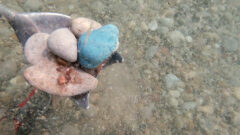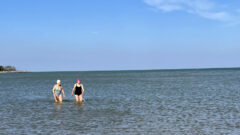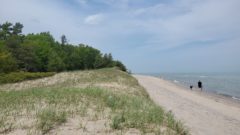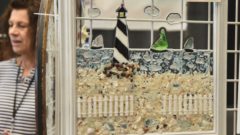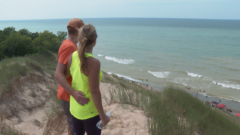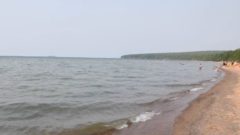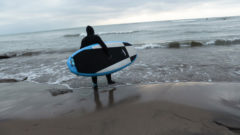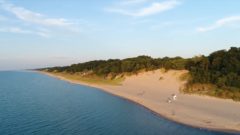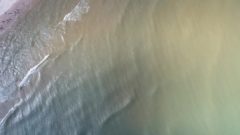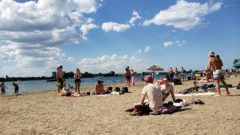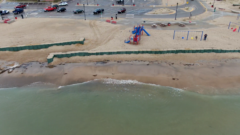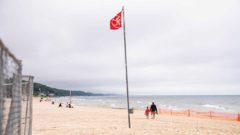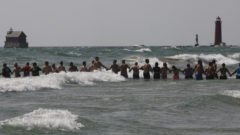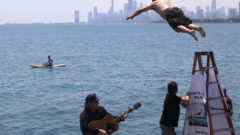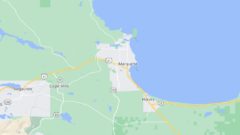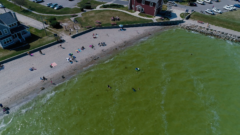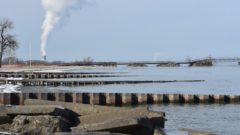Developing a faster way to detect E. coli and identify its source at public beaches
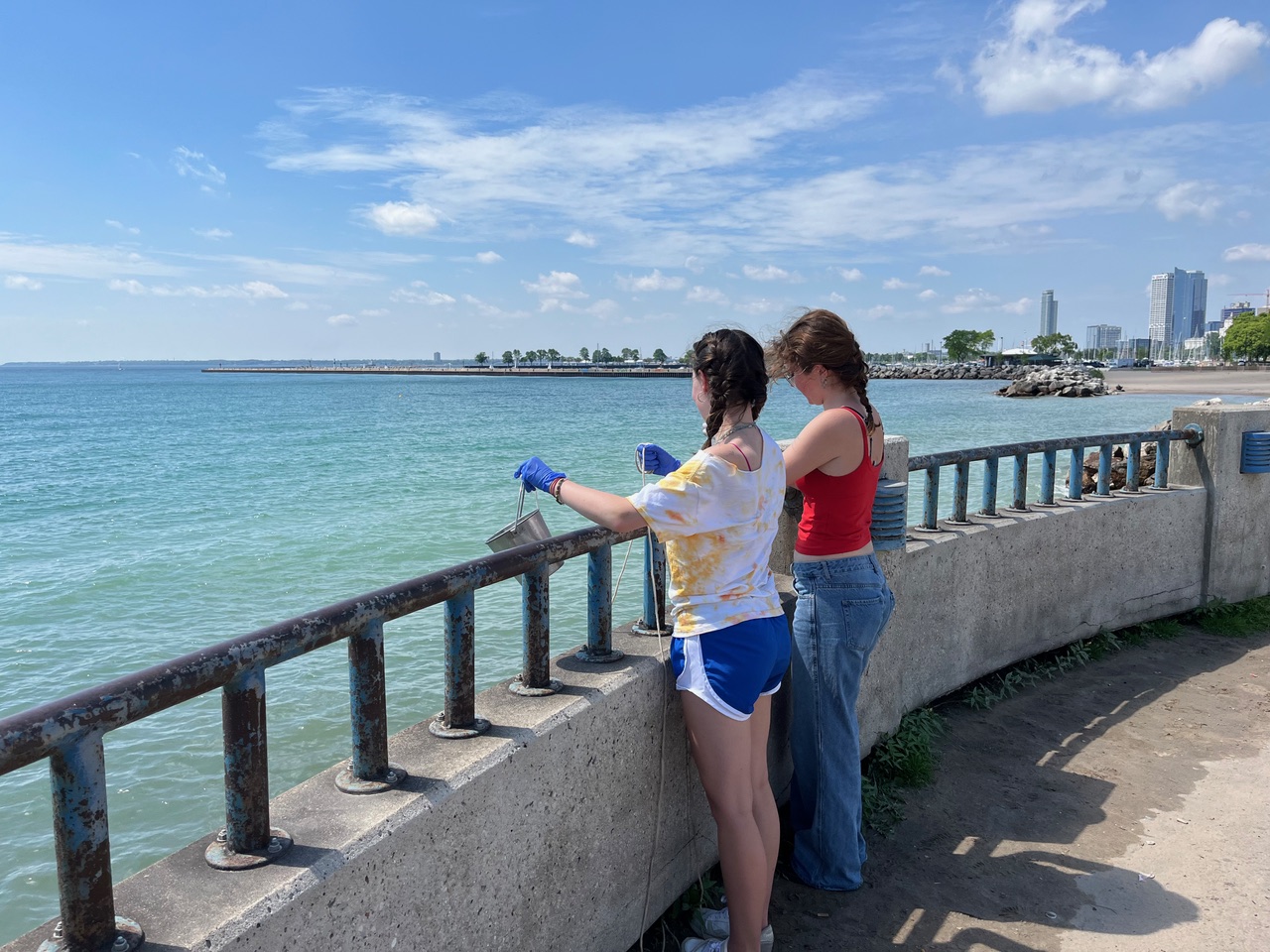
Two undergraduate students collect water samples from Lake Michigan for E. coli and other microbial DNA testing. Photo: Ryan Newton
Nothing ruins a day at the lake like E. coli. At elevated levels, the bacteria — which is prevalent in the guts and feces of both humans and animals — can make people sick, forcing beach managers to post advisories or close beaches entirely. And while current testing methods provide an accurate snapshot of E. coli levels in beach water, the results aren’t always timely.
“There’s a 24-hour lag before you get those results,” said Ryan Newton, a professor at the University of Wisconsin–Milwaukee School of Freshwater Sciences who studies microbes in aquatic environments. “It’s not ideal because you have to wait 24 hours to close a beach or take some sort of action. And at that point, the conditions may not be the same as what they were when you took the sample.”
That delay in getting results can mean people are swimming in unsafe waters or, alternatively, a beach is needlessly closed, which can have negative economic consequences.
That’s where Newton’s research comes in. With funding from Wisconsin Sea Grant, he and his team are developing a faster way to test for E. coli and identify its source so beach managers can make quick, informed decisions about the safety of their beaches and identify ways to prevent future pollution.
Rapid results using RNA
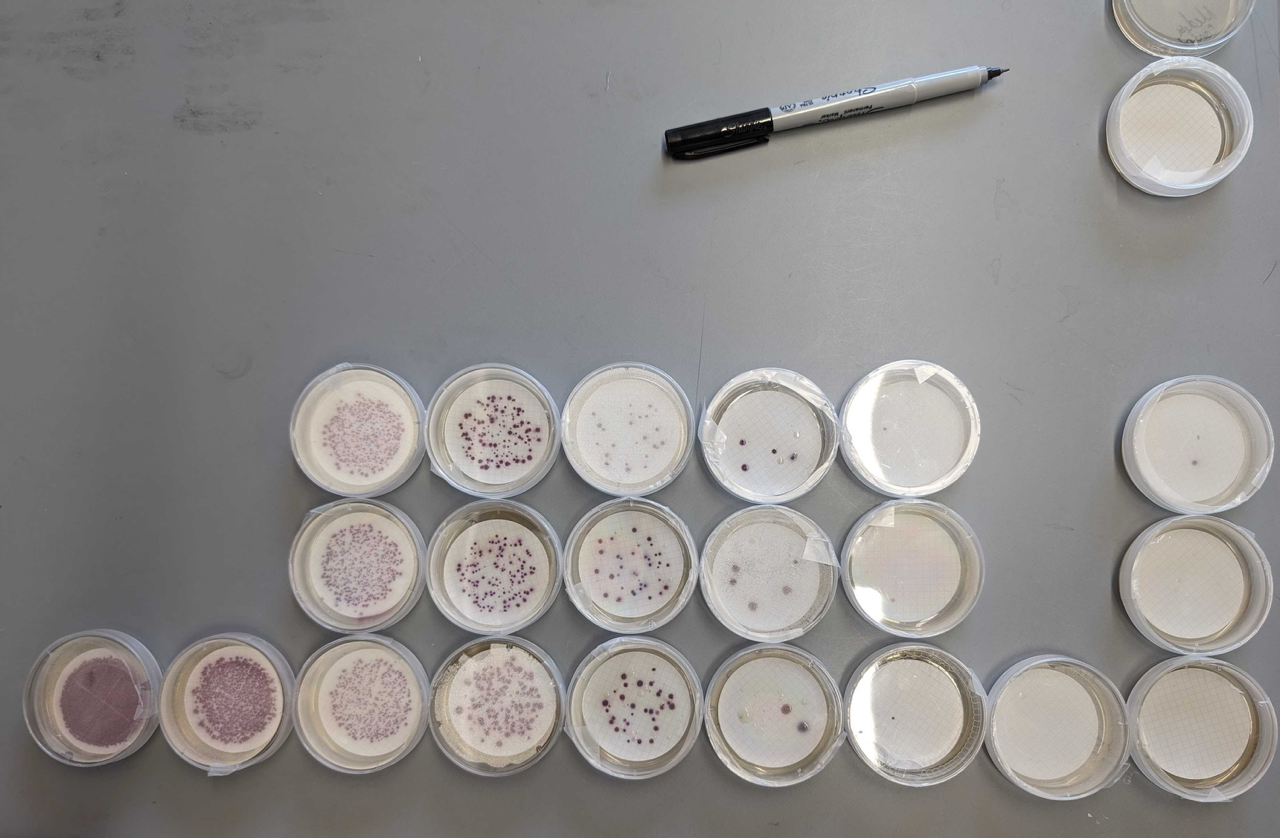
Results from E. coli testing. Each purple colony on the plate represents E. coli from the sample. Photo: Ryan Newton

Ryan Newton. Submitted photo.
Newton explained E. coli is traditionally tested by culturing the bacteria: filtering a water sample, swabbing it onto a Petri dish, warming it up, and waiting to see what grows. It’s an accurate method, but the incubation period takes at least 24 hours. The method he’s developing, on the other hand, won’t require incubation. Instead, it will make use of RNA to detect E. coli in water samples.
A quick flashback to high school biology: RNA, or ribonucleic acid, is an essential molecule that helps make proteins in living organisms, including E. coli. Like DNA, RNA features unique molecular sequences, called “signatures,” that can be used to identify organisms.
The new process Newton is developing will be able to quickly identify if E. coli signatures are present, skipping the incubation period that slows down the current process. Currently Newton’s team is fine-tuning the method in the lab before trying it out on lake water, which will present its own set of challenges.
“Things in nature don’t always play as nicely as clean water in the lab,” he said.
But whose poop is it?
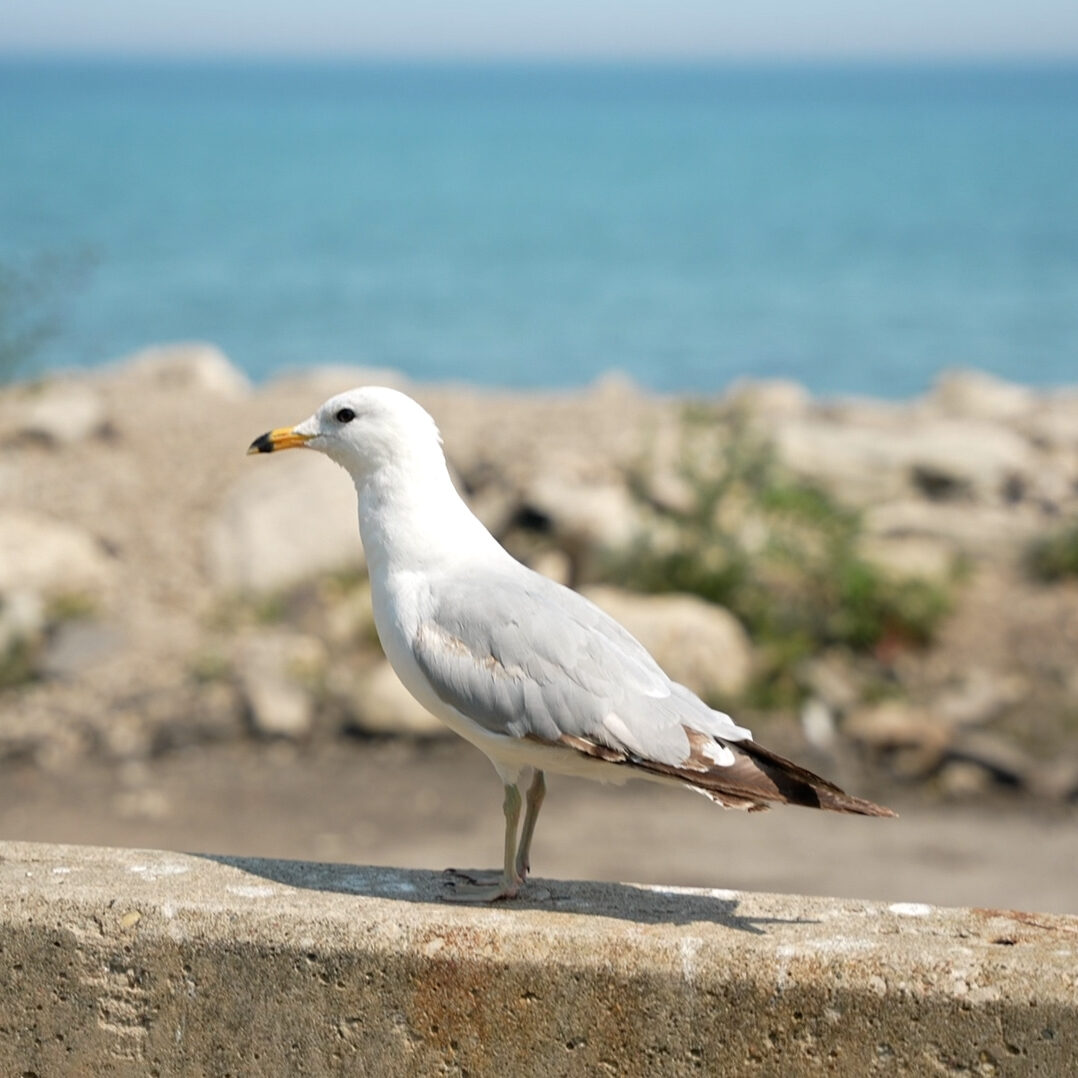
A seagull at Bradford Beach. Photo: Wisconsin Sea Grant
In addition to developing a faster way to detect E. coli in lake water, Newton’s team is also working on a method to identify its source. Such information will help public health officials assess the threat — human feces are generally considered riskier to human health than those of cows or dogs — but also help beach managers prevent future pollution.
“Right now, we’re envisioning [the test] as a way to do a quick survey of your beach and understand which pollution sources are most likely,” said Newton. “If you know it’s coming from sewage, then you just have to identify where that sewage might be coming from, whether it’s a leaky pipe or infrastructure or misconnection.”
While tests to identify individual sources exist, Newton is developing a method to identify multiple sources in one water sample. He’ll use a handheld, portable DNA sequencer to identify the types of microorganisms present, which can then reveal whether the fecal contamination is coming from humans, cows, dogs, or gulls.
It’s useful information for municipalities looking to address longstanding E. coli issues at beaches. Newton pointed to the work of colleague and Sea Grant-funded researcher Sandra McLellan, who identified seagulls and stormwater runoff as the primary sources of E. coli at Milwaukee’s popular Bradford Beach a little over 15 years ago. As a result of the study, the city implemented strategies to prevent stormwater from running across the beach during heavy rains and used dogs to scare birds off the beach.
The changes made a difference.
“Bradford became much, much cleaner after those processes were implemented,” said Newton.
He hopes the methodologies he’s developing will give beach managers timely, accurate information about water quality on their beaches that they can use. His team already works closely with the Milwaukee Health Department.
“We have a ton of partners that we work with, and our building [School of Freshwater Sciences] contains four nonprofits and three federal agencies. And so I walk down the hall and talk to them,” said Newton. “The work is fulfilling in that you can see actual change.”
***
The University of Wisconsin Aquatic Sciences Center administers Wisconsin Sea Grant, the Wisconsin Water Resources Institute, and Water@UW. The center supports multidisciplinary research, education, and outreach for the protection and sustainable use of Wisconsin’s water resources. Wisconsin Sea Grant is one of 34 Sea Grant programs supported by the National Oceanic and Atmospheric Administration in coastal and Great Lakes states that encourage the wise stewardship of marine resources through research, education, outreach, and technology transfer.
The post Developing a faster way to detect E. coli and identify its source at public beaches first appeared on Wisconsin Sea Grant.
News Releases | Wisconsin Sea Grant
News Releases | Wisconsin Sea Grant
https://www.seagrant.wisc.edu/news/developing-a-faster-way-to-detect-ecoli/

